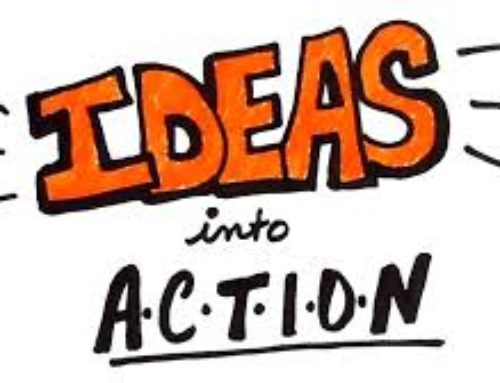If you’re in any type of counselling or life-coaching role where you’re trying to bring about change in people, then you’ve probably heard of a technique referred to as “motivational interviewing“……. But in case you’re not familiar with the method, it’s an approach based upon helping another person (your client) become more connected with their own reasons and intrinsic motivation to change.
The method requires you to shift away from being “the expert” and move instead towards being more of a guide who facilitates the change process …..
Helping someone overcome their ambivalence to change
The technique recognises that one of the sources of resistance within a person to making change in their lives can often be ambivalence.
In other words, there will often be feelings of doubt and uncertainty between continuing with an established and familiar behaviour – versus adopting a new and unfamiliar behaviour which “in theory” may hold some potential benefits.
Motivational interviewing seeks to empower and enable another to make the decision themselves and work towards a more healthy or positive behaviour. However the technique is based upon the relationship between you as the counsellor / coach and your client being more of a partnership. In other words, not a relationship in which you act as an “expert” telling your client what they should do and advising them why they should change.
You need to be asking the right questions
It’s about guiding your client to reflect more deeply within themselves and encourage the person to themselves identify and then weigh up the pros and cons of changing. It’s also about being open, accepting and non-judgmental of your client as you g uide them in trying to identify and work through the “mixed feelings” they experience about changing.
uide them in trying to identify and work through the “mixed feelings” they experience about changing.
The technique requires you as the counsellor/coach to do a lot more asking, listening and reflecting, than talking.
Motivational interviewing requires you to see the world through the eyes of your client. Your role as a counsellor or coach is to draw out from your client the reasons and benefits associated with the change and seeks to draw out the motivation for change from within the person themselves. A core principle underpinning the method is that people will be more committed to a goal they own rather than one that is imposed upon them by another (no matter how well-intentioned that other person may be).
“The best solution is the one a person comes up with for themselves”
It’s about guiding and not telling
So as the counsellor you are not putting forward the reasons your client should change – and you avoid the temptation of telling your client how they can fix their problem. Instead you are patiently guiding them to think for themselves and you respect their right to make their own decisions. You are helping the other person to focus on their goals and connect with their own innate desire to change – which we know will be much more effective than you telling them why they should change.
Motivational interviewing (M.I) is an approach that very much supports greater empowerment within the client – so they become more independent and less reliant upon the counsellor / coach to be telling them what to do. Some counsellors and life coaches however, do have a tendency to unconsciously revert to being the “expert” who solves client problems and rescues them from unhealthy situations.
For some, this shift in approach may require considerable self-awareness in order to adopt the more guiding and facilitative role of asking rather than telling – but this will be to the longer term benefit of building capability within the client to connect with their own intrinsic motivation.
You will be assisting them in learning how to shine a light through their own internal “fog”. You will be helping them to gain greater clarity around their own willingness, readiness and purpose behind making a sustained change to their life.
You assist them in clarifying whether they have a sufficient level of commitment and desire to set themselves a goal to change – and to identify whether there may be potential obstacles that could impede the change process. You might help them do a “reality check” with some of these obstacles to establish whether they are real or imagined.
For example, your client may fear a particular contingency event associated with their change, so sometimes asking the simple question “How likely is that to actually occur?” might possibly be all that’s needed for them to move forward. They may themselves acknowledge that an obstacle or risk they feared is in fact highly improbable – and so they can begin to more decisively plan for the achievement of their goal.
An example of some of the types of questions you might ask to encourage self-reflection within your client could include ….
- What are the reasons you are considering making this change in your life – what would the change achieve for you?
- What specific benefits would you gain if you were successful in making this change? …… How might others benefit from you making this change? …….. What do you see as the risks and disadvantages of not changing?
- What obstacles might prevent you from making the change?
- How could you deal with each of these obstacles?
- Who might be able to support you in making this change?
- Do you want to set yourself a goal to make this change? ……. within what time-frame?
- What steps would you need to take to achieve your goal? …… what are some easy initial steps you can take to get it started?
- What are the strengths you have within you, that would help you succeed in achieving your goal?
- How can you keep track of your progress?
You have to shift away from being the “expert”
In summary, the method reminds you as a counsellor / coach that your success lies not in motivating and solving your client’s problems – but in empowering and enabling your client to become more self-reliant in finding solutions and motivation within themselves.
 So you might perhaps step back and ask yourself whether the nature of the relationships you are building with your clients is based on having established yourself as an authority figure to whom they turn to for advice and direction on what they should do to lead better lives ……
So you might perhaps step back and ask yourself whether the nature of the relationships you are building with your clients is based on having established yourself as an authority figure to whom they turn to for advice and direction on what they should do to lead better lives ……
Or whether you are helping to build confidence and capability within your client to exercise greater self-leadership – through adopting a more “Socratic” method that is stimulating them to reflect and think critically themselves.
Equally important when using the M.I method is your own willingness to respect and accept that people have the right to decide for themselves if, when, where and how they should change – as long as their choices are not jeopardising the safety and well-being of others.
Here’s a short video clip which describes the nature of motivational interviewing and in particular, outlines the skills required to be effective in the use of this approach
By the way, if you are after more resources and perhaps exercises to assist you in developing a better appreciation of MI, here’s where you can access some material from a seminar delivered at Berkeley University
About the author
 Brian Carroll is the founder of the corporate training company, Performance Development
Brian Carroll is the founder of the corporate training company, Performance Development
He is a psychologist by background and has more than 20 years experience working actively in the field of capability development
His passion is to help people develop the mindset and skills they need to achieve their goals – thereby experiencing deeper levels of happiness, meaning and fulfillment in their life.






